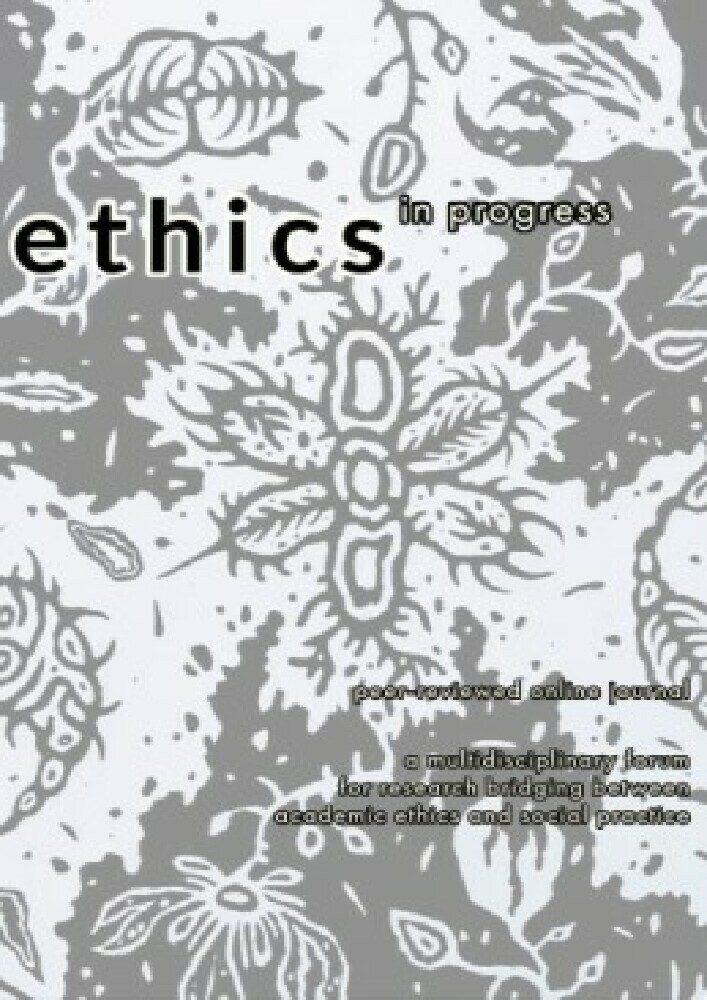Abstract
The review addresses the recent monograph Social and Institutional Dimensions of Axel Honneth’s Theory of Recognition by Marcin J. Byczyński (Łódź University Press, Jurisprudence Series, Vol. 17/2021, pp. 1–273). Jakub Kloc-Konkołowicz was the external reviewer of the doctoral dissertation which gave rise to the book. The essential contributions of this book are discussed against the background of former and pioneering recognition research from the Polish context, including this by Jakub Kloc-Konkołowicz and Marek Siemek. In addition, they are supplemented by Hegel’s three rights of freedom and further vital themes. This provides the following review with a contextual ‘surplus.’ Byczyński’s monograph considerably advances an important Warsaw-Poznań research strand and is notable for its originality among the books devoted to Honneth’s Theory of Recognition.
References
Borstel D. & Bozay K. 2020. Kultur der Anerkennung statt Menschenfeindlichkeit: Antworten für die pädagogische und politische Praxis. Weinheim – München: Juventa Verlag.
Byczyński M. 2021. Społeczne oraz instytucjonalne wymiary uznania w teorii Axela Honnetha. Łódź: Wydawnictwo Uniwersytetu Łódzkiego.
Byczyński M. 2017. “Metoda normatywnej rekonstrukcji jako narzędzie krytyki społecznej”, Filozofia Publiczna i Edukacja Demokratyczna 6(2):49–78. DOI: 10.14746/fped.2017.6.2.15 (retrieved on 25.05.2022).
Claassen R. 2014. “Social Freedom and the Demands of Justice: A Study of Honneth’s Recht der Freiheit,” Constellations 21(1):67–82.
Hegel G. W. F. 1976. System of Ethical Life (1802/3) and First Philosophy of Spirit, ed. and trans. by H. S. Harris & T. M. Knox. Albany, NY: New York State University Press.
Hegel G. W. F. 1991. Elements of the Philosophy of Right, trans. H. B. Nisbet. New York: Cambridge University Press.
Hegel G. W. F. 2002. System der Sittlichkeit [Critik des Fichteschen Naturrechts], ed. by H. D. Brandt, introduced by K. R. Meist. Hamburg: Felix Meiner.
Hegel G. W. F. 2009. Grundlinien der Philosophie des Rechts (1821). Gesammelte Werke, Vol. XIV,1, ed. by K. Grotsch & E. Weisser-Lohmann. Hamburg: Felix Meiner.
Honneth A. 1995. The Fragmented World of the Social: Essays on Social and Political Philosophy, trans. C. W. Wright. Albany, NY: State University of New York Press.
Honneth A. 1996 (orig. 1994). The Struggle for Recognition. The Moral Grammar of Social Conflicts, trans. J. Anderson with T. McCarthy. Cambridge, Mass.: The MIT
Press (in Polish: Honneth A. 2012. Walka o uznanie, moralna gramatyka konfliktów społecznych, trans. J. Duraj. Kraków: Nomos.
Honneth A. 2001. “Invisibility: On the Epistemology of the Recognition,” Aristotelian Society Supplementary 75(1):111–126.
Honneth A. 2002. “Grounding Recognition: A Rejoinder to Critical Questions,” Inquiry 45:499–520.
Honneth A. 2004. “Organized Self-Realisation: Some Paradoxes of Individualization,” European Journal of Social Theory 7(4):473–478.
Honneth A. 2005. Reification: A New Look at the Old Idea. The Tanner Lectures on Human Values, University of California.
Honneth A. 2007 (orig. 2000). Disrespect. The Normative Foundations of Critical Theory. Cambridge, UK: Polity Press.
Honneth A. 2012 (orig. 2010). The I in We. Studies in the Theory of Recognition. Cambridge, UK: Polity Press.
Honneth A. 2014 (orig. 2011). Freedom’s Right. The Social Foundations of Democratic Life. Cambridge, UK: Polity Press.
Jaeschke W. 2016. Hegel Handbuch. Leben, Werk, Schule. 3. Aufl. Stuttgart: J. M. Metzler Verlag.
Kloc-Konkołowicz J. 2015. Anerkennung als Verpflichtung. Klassische Konzepte der Anerkennung und ihre Bedeutung für aktuelle Debatte. Würzburg: Königshausen und Neumann.
Kloc-Konkołowicz J. 2007. „Siemek i filozofia. O transcendentalnej filozofii społecznej” [Siemek and philosophy. On transcendental-social philosophy], Przegląd Filozoficzno-Literacki 1(16):81–97.
Nowak E. 2003. “Das Anerkennungsprinzip bei Kant, Fichte und Hegel,” Fichte-Studien 23:75–84.
Nowak E. 2016. “Examining the Dialogical Principle in Marek Siemek’s Legacy,” Dialogue & Universalism 26(2):157–180 [Italian: „Il «principio dialogico» nell’eredità di
Marek Siemek,“ Lessico di etica pubblica 1 (2016):42–59, trans. A. De Cesaris].
Quante M. 2001. “‘Organic Unity’: Its Loose and Analogical and Its Strict and Systematic Sense in Hegel’s Philosophy,” The Southern Journal of Philosophy 39:189–195.
Siemek M. J. 1995. Filozofia spełnionej nowoczesności – Hegel [Philosophy of a finished modernity – Hegel]. Toruń: Toruń University Press.
Siemek M. J. 1998. Hegel i filozofia [Hegel and philosophy]. Warszawa: Oficyna Wydawnicza.
Siemek M. 2000. “Two Models of Dialogue,“ Dialogue & Universalism 11(54):37–56.
Siemek M. J. 2003. “Fichtes und Hegels Konzept der Intersubjektivität,” Fichte-Studien 23:57–74.
Siemek M. J. 2020. Inedita, ed. by E. Nowak. Warszawa: Warsaw University Press.
Sperroto T. U. A. 2022. Axel Honneth and the Movement of Recognition. Berlin – Boston: De Gruyter.
Van den Brink B. & Owen D. 2010. Recognition and Power: Axel Honneth and the Tradition of Critical Social Theory. Cambridge: Cambridge University Press.
License
Copyright (c) 2022 Ewa Nowak

This work is licensed under a Creative Commons Attribution-ShareAlike 4.0 International License.





